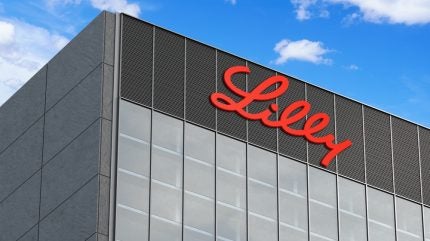
Eisai and Biogen must now brace for competition as the US Food and Drug Administration (FDA) has greenlit Eli Lilly’s Alzheimer’s disease drug donanemab, which will be sold under the brand name Kisunla.
Kisunla is an amyloid-targeting therapy intended to treat patients with early symptomatic Alzheimer’s, including those with mild cognitive impairment and those exhibiting mild dementia stages of the disease with confirmed amyloid pathology. Treatment with Kisunla runs the risk of infusion-related reactions as well as inducing amyloid-related imaging abnormalities or ARIA—a risk that warranted a black-box warning for Leqembi.

Discover B2B Marketing That Performs
Combine business intelligence and editorial excellence to reach engaged professionals across 36 leading media platforms.
However, Leqembi may have an edge since it requires only four brain MRI scans taken during the course of treatment. In comparison, Kisunla’s label specifies the need for a total of five MRI scans. Even though an FDA Advisory Committee (AdCom) panel unanimously voted in favour of Kisunla’s approval last month, panellists had raised concerns about the inadequate characterisation of safety and efficacy data for a subset of patients with homozygous apolipoprotein E4 (ApoE4), a major genetic driver of Alzheimer’s.
A few hours after the news broke, Lilly’s share price increased by almost 1%, before dipping to levels closer to the share value at market open. Eli Lilly has a market cap of 816.4bn.
While the drug is only the second to persuasively demonstrate its potential in delaying cognitive and functional decline, Kisunla will be the only available amyloid-ablating therapy designed to be used in a limited duration treatment regimen that can be discontinued once amyloid plaques are removed.
In its 2 July announcement, Lilly highlighted the fact that Kisunla requires fewer infusions and has a lower overall treatment cost. Of all the patients treated with Kisunla, 17% completed treatment at six months, 47% completed treatment at 12 months, and 69% completed treatment at 18 months, as determined by PET scan visuals of amyloid levels.

US Tariffs are shifting - will you react or anticipate?
Don’t let policy changes catch you off guard. Stay proactive with real-time data and expert analysis.
By GlobalDataWith each vial of Kisunla priced at $695.65, the cost of treatment for a six and 12 month-treatment would amount to $12,522 and $32,000, respectively. In comparison, Leqembi has an annual price tag of $26,500 per year, and is currently infused every two weeks, for a minimum of 18 months.
However, in May, Eisai initiated a rolling submission of a biologics licence application (BLA) for a subcutaneous autoinjector version of the drug that would be used for weekly maintenance dosing. The BLA for monthly IV maintenance dosing of Leqembi has a Prescription Drug User Fee Act (PDUFA) action date of 25 January 2025.
According to GlobalData’s consensus forecasts, total global sales of Leqembi are expected to reach $6.9bn in 2030 while Kisunla is expected to generate global sales of $3.2bn in 2030.
GlobalData is the parent company of Pharmaceutical Technology.




